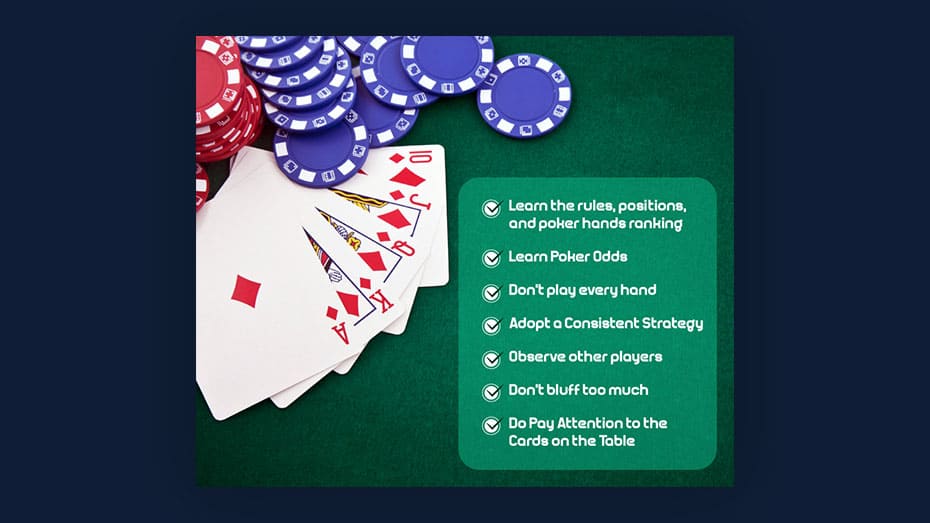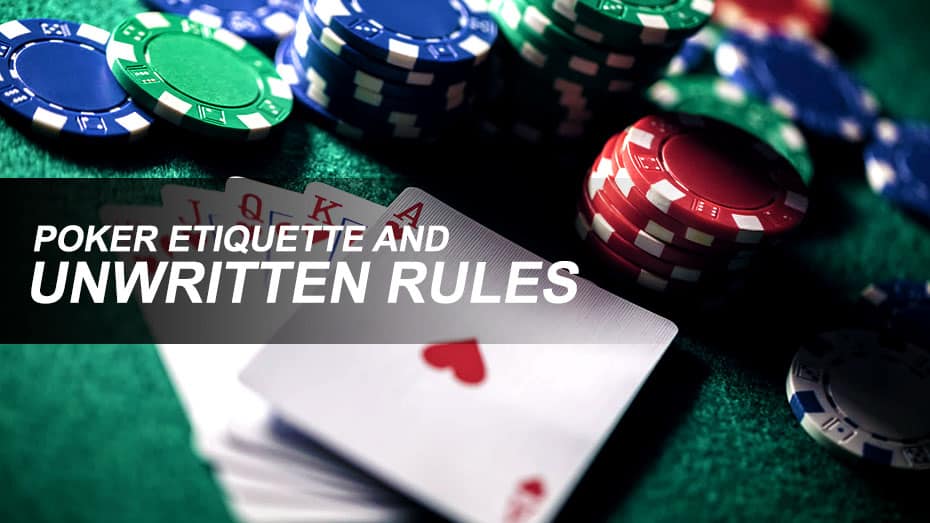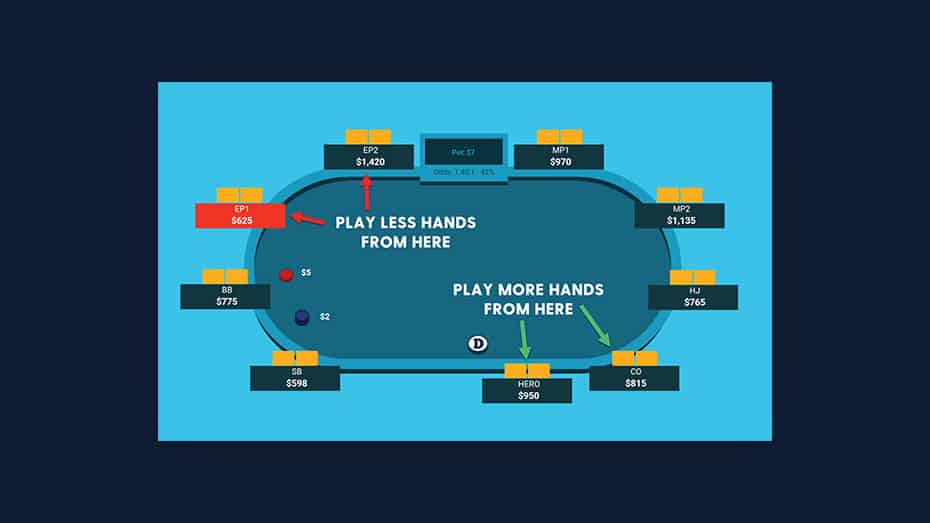The 747 Live Poker Strategies and Tips to Maximize Winnings
Before delving into poker strategies, it’s essential to have a thorough understanding of the game itself. Poker is a game of skill, chance, and psychological warfare, where players must make decisions based on incomplete information.

Understanding the Basics of Poker Strategies
There are several poker variations available, such as Texas Hold’em, Omaha, Seven-Card Stud, and more. Each game has its own set of rules and gameplay style. It’s crucial to understand the game’s objective, rules, hand ranking, and different stages of the game.

Play Tight and Aggressive
Playing tight and aggressively is one of the most successful poker strategies for both beginners and professionals. It involves playing only the best starting hands and being aggressive when in the lead. This strategy ensures that you don’t waste chips on weak hands and maximize your chances of winning when you have a strong hand.
Position is Key
The position plays a critical role in poker gameplay. Being in the right position can significantly impact your chances of winning. In poker, position refers to where you sit at the table concerning the dealer. Being in a late position provides you with more information about other players’ hands and enables you to make better decisions.
Learn to Read Your Opponents
Poker is not just about the cards you hold; it’s also about reading your opponent’s behavior and tendencies. Being able to read your opponents can help you make informed decisions and gain an edge over your competitors. Pay attention to their betting patterns, body language, and other tells that reveal information about their hand strength.
Manage Your Bankroll
Managing your bankroll is crucial to succeeding in poker. It’s essential to set aside a specific amount of money that you’re comfortable losing and not exceed that limit. Don’t chase losses or go all-in on weak hands. Stay disciplined, and only play within your bankroll limits.
Avoid Tilt
Tilt is a common phenomenon that occurs when a player loses a big hand or suffers a string of losses, leading to an emotional response that can affect their gameplay. Tilt can result in poor decision-making and reckless play, leading to further losses. It’s essential to avoid tilt by taking breaks and staying calm and composed during gameplay.
Continuously Improve
The game of poker is constantly evolving, and it’s essential to keep up with the latest trends, poker strategies, and techniques. Continuous learning and improvement are crucial to success in poker. Learn from your mistakes, study the game, and seek guidance from experts to improve your gameplay continually.
Poker Etiquette and Unwritten Rules
Poker etiquette is the unwritten code of conduct that governs how players interact with each other when playing at 747 Live. Knowing and following these rules is important to maintain a friendly and respectful atmosphere at the table.

Be Polite and Respectful
Poker is a game that requires players to engage with each other in a competitive environment. However, it’s important to remember that poker is just a game, and you should always treat other players with respect and courtesy.
Keep Your Cards Hidden
One of the most important rules of poker etiquette is to keep your cards hidden at all times. This means that you should never expose your cards to other players, as this can give them an unfair advantage.
Don’t Slowroll
Slow Rolling is the act of taking an unnecessarily long time to reveal your hand when you know you have the winning hand. This is considered to be poor etiquette and is often seen as a form of bad sportsmanship.
Don’t Splash the Pot
Splashing the pot is the act of throwing chips into the pot in a haphazard manner. This can cause confusion among other players and make it difficult to keep track of the pot size.
Don’t String Bet
String betting is the act of placing chips into the pot one at a time, rather than all at once. This can also cause confusion among players and is considered to be poor etiquette.
Don’t Talk About Your Hand
Talking about your hand while the game is still in progress is considered to be poor etiquette. This can give other players an unfair advantage and disrupt the flow of the game.
Don’t Be a Sore Loser
Losing is part of the game, and it’s important to accept defeat with grace and dignity. Being a sore loser can make the game less enjoyable for everyone involved.
Don’t Take Too Long to Act
Taking too long to act is considered to be poor etiquette.
Don’t Show Your Cards to Other Players
Showing your cards to other players can give them an unfair advantage and is considered to be poor etiquette.
Pre-flop Strategy
Poker is a game of strategy, and the pre-flop stage is the most crucial part of the game. The decisions you make during this phase can greatly affect your chances of winning. Pre-flop is the stage of the game where players have been dealt their whole cards, but no community cards have been revealed. This is the time when players decide whether to call, raise or fold. The goal of the pre-flop strategy is to make the best possible decision based on the information available to you.

Hand Strength
One of the most important factors to consider in a pre-flop strategy is hand strength. The strength of your hand will dictate the decisions you make during this stage of the game. You need to know which hands are worth playing with and which ones to fold. Here’s a list of starting hands that are considered strong:
Post-flop Strategy
Post-flop strategy in poker refers to the decisions and actions taken by players after the first three community cards (the flop) have been revealed. It is a crucial stage of the game as players have more information about their hands and the potential strength of their opponent’s hands. Here are some key points to keep in mind when developing your post-flop strategy:

Evaluate the flop
The first step is to assess the flop and determine how it might affect your hand. Look at the texture of the flop (i.e., whether it is wet or dry), the potential draws, and the possible combinations of hands your opponents might have.
Consider your position
Your position at the table can significantly impact your post-flop strategy. Being in a late position can give you more information about your opponents’ actions and allow you to make better decisions.
Bet sizing
The size of your bet is important in the post-flop play as it can help you gain information about your opponents’ hands. A smaller bet can encourage your opponents to call or raise, while a larger bet can put pressure on them to fold.
Hand range
As you consider your own hand, it is important to think about the range of hands that your opponents might hold. This will help you to make better decisions about whether to bet, call, or fold.
Bluffing
Bluffing can be an effective tool in post-flop play, but it should be used sparingly and strategically. Look for spots where you can represent a strong hand and force your opponents to fold.
Pot odds
It is important to calculate the pot odds to determine whether it is worth calling a bet or making a bet yourself. This involves comparing the size of the bet to the size of the pot and the likelihood of improving your hand.
Adjust to opponents
Finally, it is important to adapt your post-flop strategy to the playing styles of your opponents. Pay attention to their tendencies and adjust your play accordingly.
Advanced Poker Strategies
Before we dive into advanced strategies, it’s important to ensure you have a good grasp of the fundamentals of poker. Poker is a game of skill and luck, where players make wagers on the strength of their hand compared to their opponents. The goal of the game is to have the best hand or to make all other players fold their hands.

Poker has many variations, but the most popular version is Texas Hold’em. In this version, each player is dealt two cards, and then five community cards are dealt face-up in the middle of the table. Players must use their two-hole cards and the five community cards to make the best possible five-card hand.
Evaluating Hand Strength and Starting Hands
One of the keys to success in poker is understanding hand strength and starting hands. Not all hands are created equal, and it’s important to know which hands are worth playing with and which hands to fold. In general, hands with high card ranks and pairs are strong starting hands, while hands with low card ranks and unsuited cards are weaker.
Advanced Position Play
Position play is a crucial aspect of advanced poker strategy. Knowing how to play from different positions can give you a significant advantage over your opponents. In general, playing more aggressively in a late position can put pressure on your opponents and help you win more pots.
Bluffing and Semi-Bluffing
Bluffing is an essential part of poker strategy, but it’s also one of the most challenging skills to master. Bluffing involves making a bet or raise with a weak hand to make your opponents believe you have a stronger hand than you actually do. Semi-bluffing is a similar strategy where you have a drawing hand but make a bet to put pressure on your opponents.
Bet Sizing and Pot Odds
Another crucial aspect of advanced poker strategy is bet sizing and pot odds. Bet sizing refers to how much you should bet or raise, while pot odds refer to the ratio of the current pot size to the cost of calling a bet.
FAQs
Conclusion
Outside of the actual game, maintaining a strong poker face has many advantages. People can tell if you can keep a professional manner in any difficult situation and if you can regulate your bodily emotions in any situation. With a commitment to providing a high-quality gaming experience, 747 Live offers a variety of popular casino games and maintains the highest quality gaming experience.










